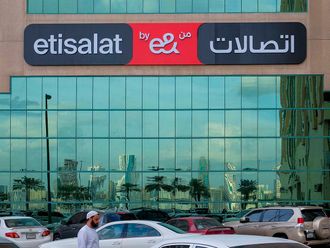Dubai: Egypt's stock exchange, shut down since January 27 following enormous losses during the political unrest, will not reopen until Wednesday, state television reported on Saturday.
The announcement came a day after Egypt's long-time president Hosni Mubarak stepped down and handed control of the country to a military council after 18 days of popular protests demanding an end to his 30-year rule.
This is the second time the government has postponed the reopening of the bourse which was due to start trading again February 7 and then on February 13. It lost 16 per cent on the week ending January 27.
"It should remain closed," said Ahmad Wahid, Senior relationship manager at Egypt-based brokerage Naeeem Holdings.
With the fall of the regime, many questions remain about the next government and its economic policies, he said.
Fate of subsidies
The former government subsidised fuel and other costs for companies, but now the fate of subsidies is unclear. "How can companies build investment strategies on something vague?" he said.
Although the political situation is clearer than it was last week, investors still have many questions about the next political step in Eygpt.
"The president is gone, so who's next in charge? The military? That is not a good sign and foreign investors are afraid of the Muslim Brotherhood because they have the impression that they are extremists. Investors will raise all these questions," he said. "Next week will be a little bit tricky until we know what will happen to the country and who will hold the ministry."
There also remains the question of Egypt's peace deal with Israel. "Egypt is a leading country with a big role in the region. Investors have to make sure there are laws protecting them," said Ziad Al Dabbas, Adviser of Domestic Capital Markets Group at NBAD. The stock exchange would have seen some short-term positive gains if it opened today as the regime change boosted investor confidence and long-term investors consider buying stocks at cheaper prices, analysts said.
The political turn of events as Mubarak stepped down on Friday "relieved the tension" of investors as demonstrations in Egypt subsided, he said.
However, it is "too soon" for long-term investors to make a "strategic call", he added. For sophisticated investors this is not enough: they want to understand the succession, the process until the elections and the economic policies to come, he said.
"There is a big shake-up in Egypt. The constitution will be amended, key leaders left the country, some people are under house arrest. There are a lot of questions and we don't have a clear idea now," he said.
When the market opens, foreign investors will likely consider Egyptian companies with investments abroad, like Orascom Construction and others, said Wahid.
Commodities
They will also focus on companies trading in commodities such as sugar, with prices soaring globally, as a safe bet, he added.
"I expect that leading companies, whose prices dropped during the crisis, will see high demand for buying when the bourse opens. Some Egyptian companies traded in the London Stock Exchange saw high demand there, it indicates how things will go," said Al Dabbas.
Investors are likely to be more optimistic because a new liberal and democratic regime means better economic policies going forward, he added.
There is a "decoupling" between the Egyptian market and regional ones, so fears about the domino effect of spreading protests do not apply to all countries in the region, analysts said.
The GCC has a different socio-political dynamic and is not prone to such political instability, Al Dabbas said.
Global and regional markets saw positive gains after Mubarak's resignation on Friday, with the S&P 500 rising 0.6 per cent and the MSCI World Index increasing 0.2 per cent.
— With inputs from Bloomberg











